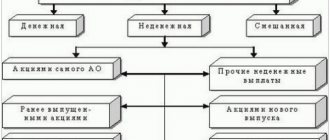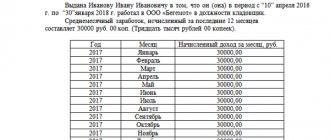What is Internet acquiring
Internet acquiring, in simple words, is a service with which you can pay for goods/services with bank cards directly on the website.
One of the main features of electronic acquiring is that there is no need to install a terminal. It is replaced by a special web form for making payments via the Internet. You can connect online acquiring not only for an online store, but also for a mobile application.
"Beznal" and electronic money - what's the difference?
Some will wonder what, exactly, is the difference between electronic money and those that “lie” in the organization’s current account? In fact, neither one nor the other can be “held” in your hands, then why bother with acquiring? To some extent, these are fair statements, however, these two concepts have a significant difference between themselves. Money in a current account is some kind of conventional units that can be converted into real “pieces of paper”, yes, but they are contained in bank accounts and the procedure for using them is well known to all accountants. As for electronic money (Yandex.Money, WebMoney, QIWI, bank card funds and others), most of them belong to individuals and they can use them by other methods. In other words, a certain LLC makes its payments through the Client Bank, and you and I enter our card details on the website and pay for the purchase. To put it even simpler, individuals and legal entities have different “wallets”. And just so that among your clients there are “physicists,” as they are sometimes called now, you need online acquiring. We are now talking about fairly simple things, but just in case we give explanations to them.
How acquiring works
Conventionally, several parties take part in the implementation of Internet payments (there are others to ensure interaction between participants):
- buyer;
- salesman;
- issuing bank (the bank that issued the buyer’s card);
- acquiring bank (the bank that provided the seller with Internet acquiring services);
- payment system (payment system of the buyer’s card - for example, VISA or MasterCard).
The Internet acquiring operation scheme is as follows:
- The buyer moves purchases to the cart and selects a bank card as a means of payment via the Internet.
- On the authorization page that opens, he enters the data indicated on the front and back sides of the card. A request for the payment system is automatically generated.
- That, in turn, makes a request to the issuing bank to verify the buyer’s solvency.
- If the card is valid and there are enough funds on it for payment, the security system is then activated. A special security code is sent to the buyer’s phone. This code must be entered in the appropriate field to confirm payment.
- The issuing bank informs the payment system that the transaction has been approved.
- The payment system passes this on to the acquiring bank. He debits money from the buyer’s account and notifies the site about the transaction.
- The online resource confirms the purchase and sends the product to the recipient.
The entire process is automated, the procedure takes just seconds. One of the priorities when making online payments is their security. Reliable protection of the Internet acquiring system is based on the use of the SSL protocol in combination with bank card protection technologies. The latter are developed by payment systems.
The most popular card security mechanism is the 3D-Secure protocol from VISA (Verified by VISA). It involves a two-stage identification of the cardholder with the simultaneous use of a three-domain system. In simple terms, the operation scheme of this security system is described just above. Similar protection mechanisms are offered by the MC (MasterCard SecureCod) and JCB (J/Secure) payment systems.
There is also a SET standard, with which you can make secure payments between buyer and seller without entering payment details. Thanks to MIA SET technology, you can build an impressive system of protection against fraudulent activities and minimize your liability for the illegal use of bank cards by third parties.
We recommend: Acquiring tariffs and ratings of all banks.
Accounting entries
Using an example of an online store, when a buyer pays for goods by card
- Debit 57 Credit 62, subaccount “Settlements for advances received” – the customer made an advance payment for the service via the Internet;
- Debit 76, subaccount “VAT” Credit 68, subaccount “VAT” – VAT is charged on the advance;
- Debit 51 Credit 57 – funds (minus bank commission) were credited to the settlement account of the executing organization;
- Debit 76, subaccount “Bank” Credit 57 – remuneration (commission) withheld by the bank (bank statement);
- Debit 91, subaccount “Other expenses” Credit 76, subaccount “Bank” - bank commission is reflected in expenses;
- Debit 62, subaccount “Settlements for Revenue Rendered” – income from the provision of services is recognized on the basis of an act of services rendered;
- Debit 90, subaccount “VAT” Credit 68, subaccount “VAT” – VAT is charged on revenue from the provision of services;
- Debit 62, subaccount “Settlements for advances received” Credit 62, subaccount “Settlements for VAT provided” Credit 76, subaccount “VAT” - VAT accrued from the amount of advance payment is accepted for deduction;
- Debit 90, subaccount “Cost of sales” Credit 20 – the cost of the service is written off;
- Debit 90, subaccount “Profit/loss from sales” Credit 99 – financial result is reflected (identified for the reporting month).
Let's offer one more example. The company installed a terminal for accepting payment cards in the store. A client came to the store and paid for the goods with “card” money. The accountant will need to reflect this money as follows:
- Debit 62, Credit 90/1 – Proceeds from sales to customers who paid with payment cards;
- Debit 90/3, Credit 63 VAT – VAT on the sales amount by bank transfer;
- Debit 57, Credit 62 – Transfer to the bank of an electronic journal with information about payment by bank cards;
- Debit 51, Credit 57 – Acceptance of funds from the bank for goods sold by bank transfer minus commission;
- Debit 91, Credit 57 – Write-off of bank commission for acquiring services.
Advantages of Internet acquiring
Online payments open up great opportunities for business development. First of all, this is an increase in income from your activities, as more and more buyers prefer to pay for purchases on the Internet. But there are other advantages:
- Expansion of geography. The Internet erases borders, electronic payments and modern delivery methods make it possible to sell goods and services all over the world.
- Sales 24/7. Even if you are on a weekend or vacation, your online store is always open.
- Cost reduction. There is no need to pay rent, salaries to sellers and incur other expenses for maintaining the store. You will also save significantly on promoting an online resource compared to promoting an offline location. Along with reducing expenses, personal resources are also freed up for solving more important tasks.
- Minimizing risks. The chance of accepting a counterfeit bill or counting money incorrectly approaches zero.
Combined with smart marketing, these advantages will give you a strong position among competitors in the market.
Who needs acquiring
As of today (May 2021), all businessmen with annual revenues of up to 30 million rubles. are obliged to provide customers with the opportunity to pay using bank cards. From July 1, 2021, this limit will be reduced to RUB 20 million. per year (law dated July 31, 2020 No. 290-FZ).
But for businessmen with lower turnover, in most cases it is better not to give up acquiring.
Buyers have long appreciated the convenience of cashless payments. Therefore, a retail outlet where you cannot pay by card may quickly experience an outflow of customers who will go to competitors.
And if we are talking about online trading, then acquiring is generally the only option that will allow the seller to receive money.
Bank selection
We recommend: Tariffs of all Russian banks for Internet acquiring.
At first glance, it is better to choose a bank that offers the most favorable tariffs - low connection costs and minimal commission for each transaction will save money. But you can only get free cheese in a mousetrap. Therefore, cheap electronic acquiring is not always the best choice. To compare the acquiring conditions of different banks, it is important to consider:
- Which payment systems are supported (VISA, MC, UnionPay, etc.).
- What currency can you pay with?
- How quickly the money is credited.
- Does it support 3D-Secure.
- What CMS services does it support?
- How stringent are the requirements for the site?
- Does it accept payments through social networks and instant messengers?
- Does it comply with 54-FZ?
- What is the size of the commission for each transaction, are the rates affordable?
- What documents are needed to connect?
- When can I connect?
- Do I need a current account in the same bank?
Viewing bank ratings based on various indicators (reliability, popularity, rates, etc.) will also help you decide. Having assessed the banks according to all parameters, you will find a reliable partner with a full range of ]inexpensive services[/anchor], low interest rates on Internet acquiring and no surprises in the form of hidden fees.
Comparative table of tariffs for Internet acquiring
| Banks | Internet acquiring (availability and %) |
| Dot | 2,8% |
| Tinkoff | from 2.39% |
| Modulbank | from 1 to 2.4% |
| Opening | from 2.5% |
| VTB | commission is calculated individually |
| Alfa Bank | from 2.4% |
| Sberbank | from 1.8 to 2% |
| Rosbank | from 2.1 to 2.6% |
| Raiffeisenbank | 2,7% |
| Promsvyazbank | commission is calculated individually |
| DeloBank | from 0.89 to 2.99% |
| Loko-Bank | 2,5% |
| Sphere | commission is calculated individually |
| Sovcombank | 2,6% |
| Uralsib | from 2.1 to 3% |
| UBRD | from 1.6% |
| MTS-Bank | No |
| Ak Bars Bank | individually |
| Rosselkhozbank | commission is calculated individually |
What affects the cost of acquiring
Bank tariffs vary, but all credit institutions have the same costs: they pay interbank commissions and commissions to payment systems, and are spent on equipment maintenance and staff salaries.
All these costs are included in one way or another in the acquiring rate. What else can influence the total cost of the service:
1
Business area
As a rule, the acquiring commission for a gas station and, for example, a bakery will be different. This is due to the fact that the acquiring bank itself also pays commissions to payment systems.
2
Turnover
The general rule is: the higher the turnover, the lower the rate usually is. In SberBusiness, the rate for trade acquiring is dynamic - it is recalculated every month taking into account the growth or decline in turnover. And if the client connects several types of acquiring - for example, trade acquiring and “Pay QR”, the total volume of non-cash payments is taken into account.
3
Region of operation
The rate may vary depending on the region.
4
Type of equipment
There are stand-alone portable and stationary POS terminals, as well as those integrated with online cash registers. SberBusiness has SmartPOS, which combines the functions of a cash register and an acquiring terminal. And also the “Pay QR” service - accepting payments using a QR code from clients of SberBank and Tinkoff, when connecting to which no equipment is required at all. The wider the functionality of the terminal, the higher the cost.
5
Buying or renting terminals
Equipment can be purchased or rented. If you buy a terminal yourself and not from a bank, check whether it has the necessary certificates. Without them, you will not be able to accept payments.
The average cost of terminals on the market is from 10 to 25 thousand rubles.
6
Number of terminals
As a rule, the turnover for which the bank sets a commission is calculated as an arithmetic average: the revenue of all points is summed up and divided by the number of terminals.
7
Service maintenance
Maintenance of each terminal also costs money. SberBusiness does not charge a fee for it with a turnover of 80 thousand rubles per terminal or rental of an online cash register. Service fees for online cash registers at SberBusiness must be paid regardless of the amount of turnover.
8
Type of communication channel: electricity and Internet costs
The terminals can be powered by mains or battery power, and connected to the Internet using Ethernet, a SIM card, or Wi-Fi. SberBusiness provides SIM cards for its terminals and pays for communication services for you.
9
Own processing center in the bank
The commission may be lower if the bank has its own processing center, since there is no need for intermediaries. SberBusiness has one.
If a bank offers you a rate significantly lower than that of competitors, be prepared for additional commissions - for example, for crediting funds to a current account in another bank.
Connecting acquiring
To connect acquiring you need to go through several steps:
- Fill out an application on the website of the selected bank.
- A call from the manager for advice on connection conditions and necessary documents (as a rule, these are constituent documents).
- Meeting with a bank employee to sign an agreement.
- Receiving and installing a special plugin on the site.
- Testing the performance of Internet acquiring.
- Accepting payments from buyers.
Not all business areas can use this service. For example, you cannot connect to Internet acquiring if you sell tobacco, alcohol or jewelry. For a complete list of prohibited activities, please check with your acquiring banks.
Briefly about the regulatory framework
The transfer of funds is regulated by Federal Law dated June 27, 2011 No. 161-FZ “On the National Payment System”. The transfer of funds is carried out within no more than three working days starting from the day the funds are written off from the payer’s bank account (Clause 5 of Article 5 of Law No. 161-FZ).
Revenue from the sale of goods is accounted for according to the rules of PBU 9/99 “Organizational Income”. According to paragraphs 5 and 6, revenue is recognized on the date of transfer of goods to the buyer, regardless of the date and procedure for payment for the goods. The actual cost of goods sold is recognized as expenses for ordinary activities and is taken into account in the cost in accordance with PBU 10/99 “Organizational expenses”.
Note!
The amount of the balance on account 57 should be equal to the amount of revenue (the turnover of the previous day) if the bank transfers money from acquiring transactions to the current account the next day, or the turnover for several days if the bank transfers money longer.
Commission fees for the services of the acquiring bank are taken into account as part of other expenses on the date the proceeds are credited to the organization's current account (clause 11, 14.1 of PBU 10/99). Let us remind you that the proceeds from the sale of goods are credited to the current account of the organization or entrepreneur minus the bank remuneration.
Internet acquiring agreement
An agreement with a bank is a mandatory document to begin cooperation. It specifies tariffs, acquiring conditions, rights and obligations of the parties, and the procedure for resolving disputes.
Banks can also stipulate in the agreement certain requirements for the technical parameters of the site and its content. It is often necessary to indicate the type of activity, detailed information about goods and services, as well as details and contact information of the company.
Always read the documents carefully before signing and don’t hesitate to ask a question if anything is unclear!
Tax accounting
VAT
The tax base for VAT is determined as the cost of the goods (less VAT) on the date of transfer of ownership of the goods to the buyer (clause 1 of Article 154 of the Tax Code of the Russian Federation). The acquiring bank's remuneration is recognized by trading organizations as non-operating expenses (subclause 15, clause 1, article 265 of the Tax Code of the Russian Federation).
The day of calculation of VAT for the seller will be the date of receipt of funds from the buyer (subclause 2, clause 1, article 167 of the Tax Code of the Russian Federation).
The acquiring bank's services for conducting settlements are not subject to VAT (subclause 3, clause 3, article 149 of the Tax Code of the Russian Federation). Consequently, the cost of bank services does not include “input” VAT.








